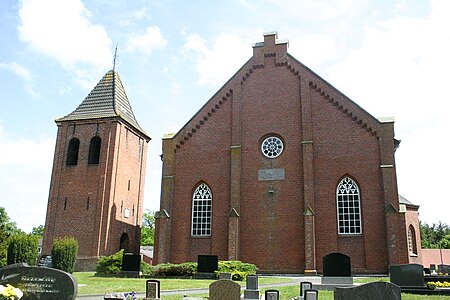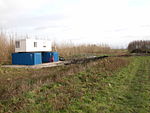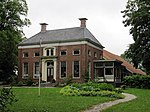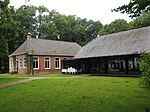Bunde is a municipal district in East Frisia, in Lower Saxony, Germany, about 20 km (12 mi) south of Emden, Germany, and 50 km (30 mi) east of Groningen, Netherlands. It lies on the southern tip of the Dollart, a bay of the North Sea between Germany and the Netherlands, and has a land border with the Netherlands.
Bunde is among the smaller districts of East Frisia, with a population of 7,607 (as of 2015). About half live in the town of Bunde itself. The district's population density is comparatively low at 62/km2 (160/sq mi), compared with 228/km2 (590/sq mi) for Germany as a whole. In the 17th and 18th centuries, sizeable areas of the district were wrested from the sea by the creation of polders.
Bunde's economy centers on agriculture and tourism. The community has been officially recognized as a resort town since 1998. Many of the town's residents commute to jobs elsewhere, notably in Leer, about 13 km (8 mi) to the east. Residents include a number of Dutch nationals, most of whom commute to jobs in the Netherlands.
The town's cultural artifacts include the Reformed Church (Reformierte Kreuzkirche), the nave of which dates from the 13th century, and the red brick Steinhaus Bunderhee castle, which dates from the 14th century.












